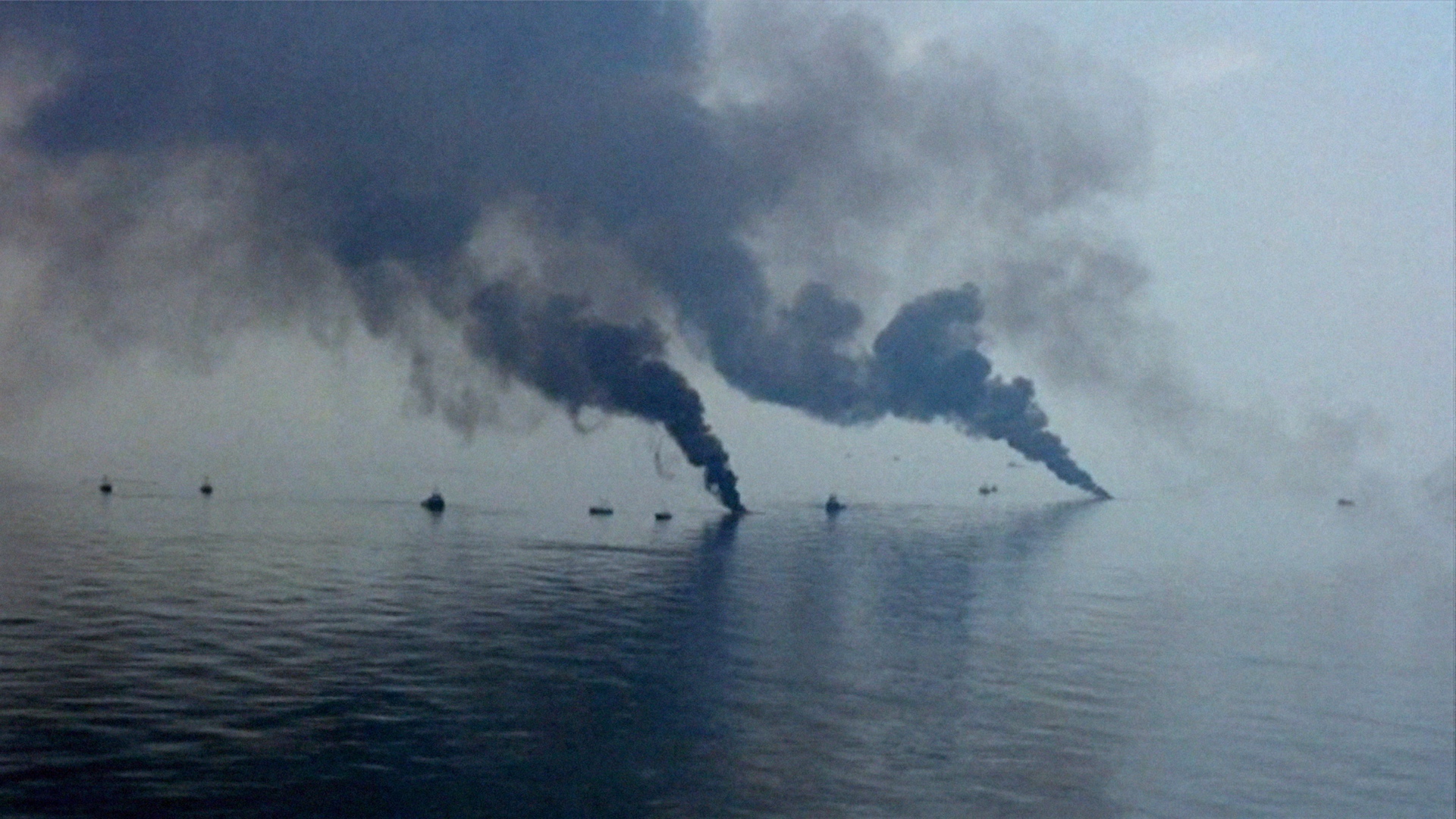The Great Invisible
Opens Fri., Dec. 12 at Harvard Exit. Rated PG-13. 92 minutes.
Is a documentary an information-delivery system or a work of art? This question keeps dogging the makers of nonfiction films, and director Margaret Brown takes a stab at having it both ways in The Great Invisible. Brown, who made the affecting 2004 portrait Be Here to Love Me: A Film About Townes Van Zandt, has here tackled the Deepwater Horizon oil spill—and most important, its aftermath. Brown does due diligence in reminding us of the devastating 2010 explosion at the offshore oil rig, which killed 11 workers and caused extensive damage to the ecosystem of that part of the Gulf of Mexico. One of the film’s eeriest tools is home-movie footage shot on the rig before the disaster, a cheerful tour through the state-of-the-art (but still dangerous) structure.
This is a prelude to the film’s real subject: how things are going four years after the incident. Much was made at the time of oil giant BP’s announcement to set aside many billions for compensation, a bold move that was supposed to avoid the kind of litigation (ongoing) from the 1989 Exxon Valdez spill. Nobody seems too happy; BP has been complaining about payments made to undeserving claimants (Brown doesn’t cover this in the film), but The Great Invisible finds a number of people who have yet to receive compensation. Brown focuses on specific individuals, including workers from the oil rig whose injuries—including post-traumatic stress—are still left unresolved.
Just as poignant is the glimpse into tiny Bayou La Batre, Alabama, where hesitant locals appear overwhelmed by the paperwork and bureaucracy connected to claiming reparations for the harm done to their seafood industries. At least one great character study emerges: Roosevelt Harris, an indomitably upbeat gentleman who helps the scattered rural folk claim their just due. Along with this material, Brown includes some haunting images of the landscape, yet The Great Invisible doesn’t entirely succeed as either journalism or poetry. This saga is still unfolding, and while the film will likely serve as a reminder of a forgotten crisis, it feels like an opening salvo, not the definitive word. Even the wealthy oilmen who somehow agreed to let Brown eavesdrop on their conversation—in which they come close to acknowledging that they don’t know what to do about oil, either—are being overtaken by time; the recent drop in gas prices might have them slowing their intake of cigars and whiskey.
film@seattleweekly.com







